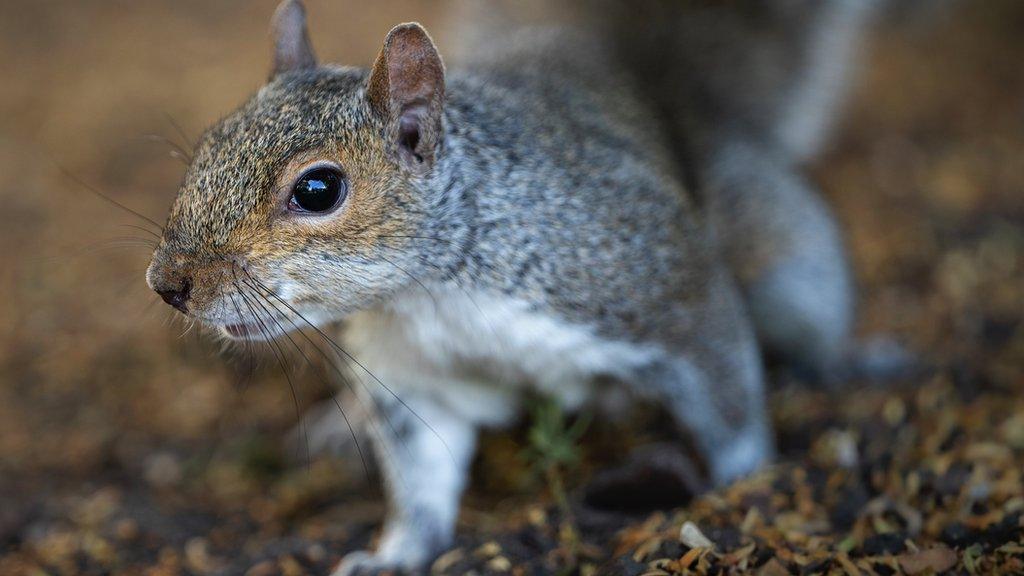Pox outbreak threatens red squirrel population
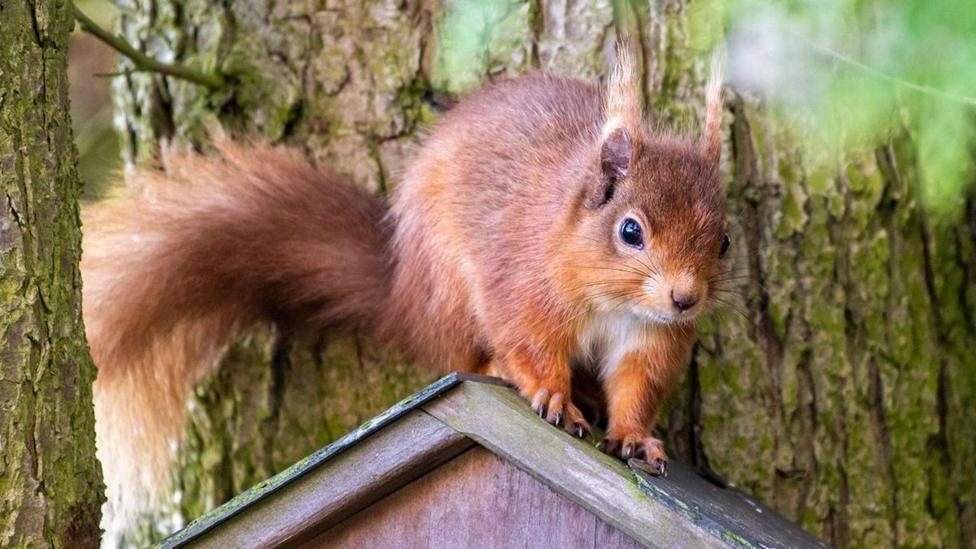
Red squirrels are seen in far smaller numbers in England than their grey counterparts
- Published
Groups working to protect the remaining pockets of red squirrels in England say they are "devastated" after an outbreak of a deadly disease was confirmed.
Volunteers with Cramlington and District Red Squirrel Group, in Northumberland, have spotted a number of 'reds' with symptoms of squirrel pox, and a carcass sent away for analysis has been confirmed as positive for the disease.
Squirrel pox is carried by grey squirrels, which are not affected by it, but causes red squirrels to die slowly and painfully.
The Department for Environment, Food and Rural Affairs (Defra) confirmed the single case, but says there is no threat to humans or livestock.
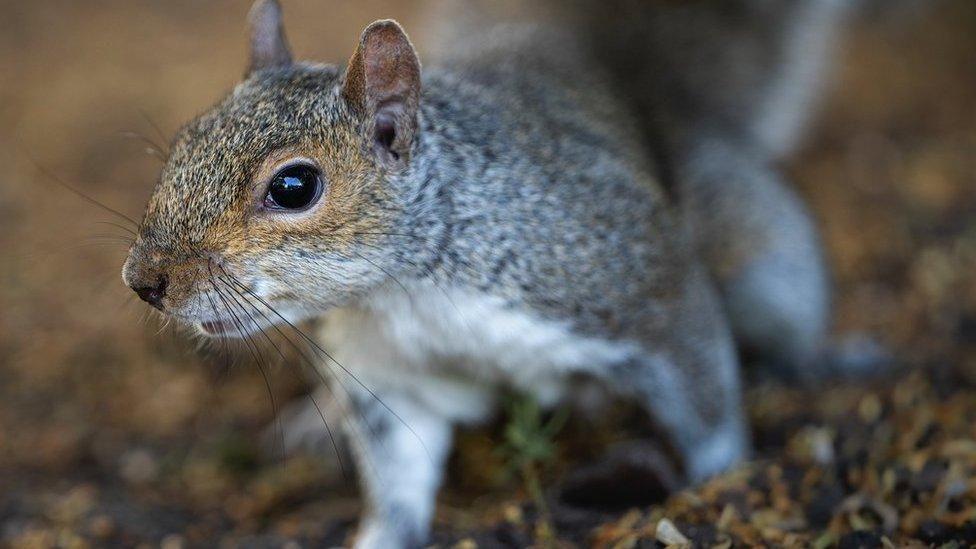
Groups in Northumberland say there has been a huge increase in sightings of grey squirrels in 2024
In 2024, volunteer groups trying to preserve Britain's native red squirrel population say they have seen a huge increase in the number of larger, more aggressive, non-native greys pushing into traditional red squirrel territory.
Leon Savage, from the Cramlington group, said: "We haven't had an outbreak of squirrel pox for a number of years so this is a devasating development."
"We think we've had about four cases within a half-mile radius in two separate woodlands in Blyth, and another one in New Hartley."
"Unfortunately we've now had confirmation from the Animal and Plant Health Agency, external that it is squirrel pox," he added.
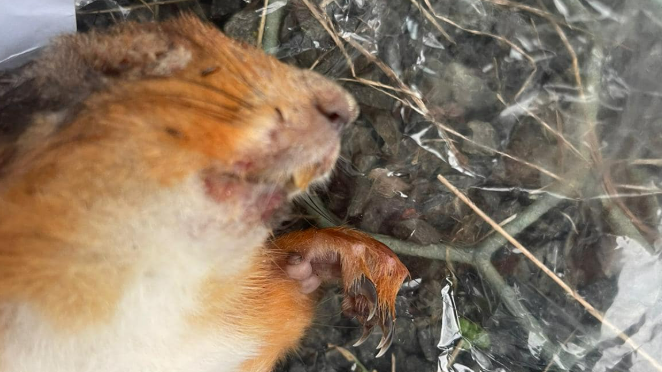
Squirrel pox is carried by greys but only affects the red squirrel population
The group is asking anyone who has garden visits from red and grey squirrels in Cramlington, Blyth, Seaton Sluice, New Hartley, Seaton Delaval and Seghill to remove any feed - which might be shared by both species - in order to reduce the risk of disease spreading.
The neighbouring Bedlington and District Red Squirrel Group believes it has also spotted a case of squirrel pox.
Co-ordinator Paul Brannon said: "We spotted one in Gallagher Park on the cameras, but we haven't caught it so it may have died."
"We're hoping it's an isolated case," he said, adding: "We just have to keep fighting."
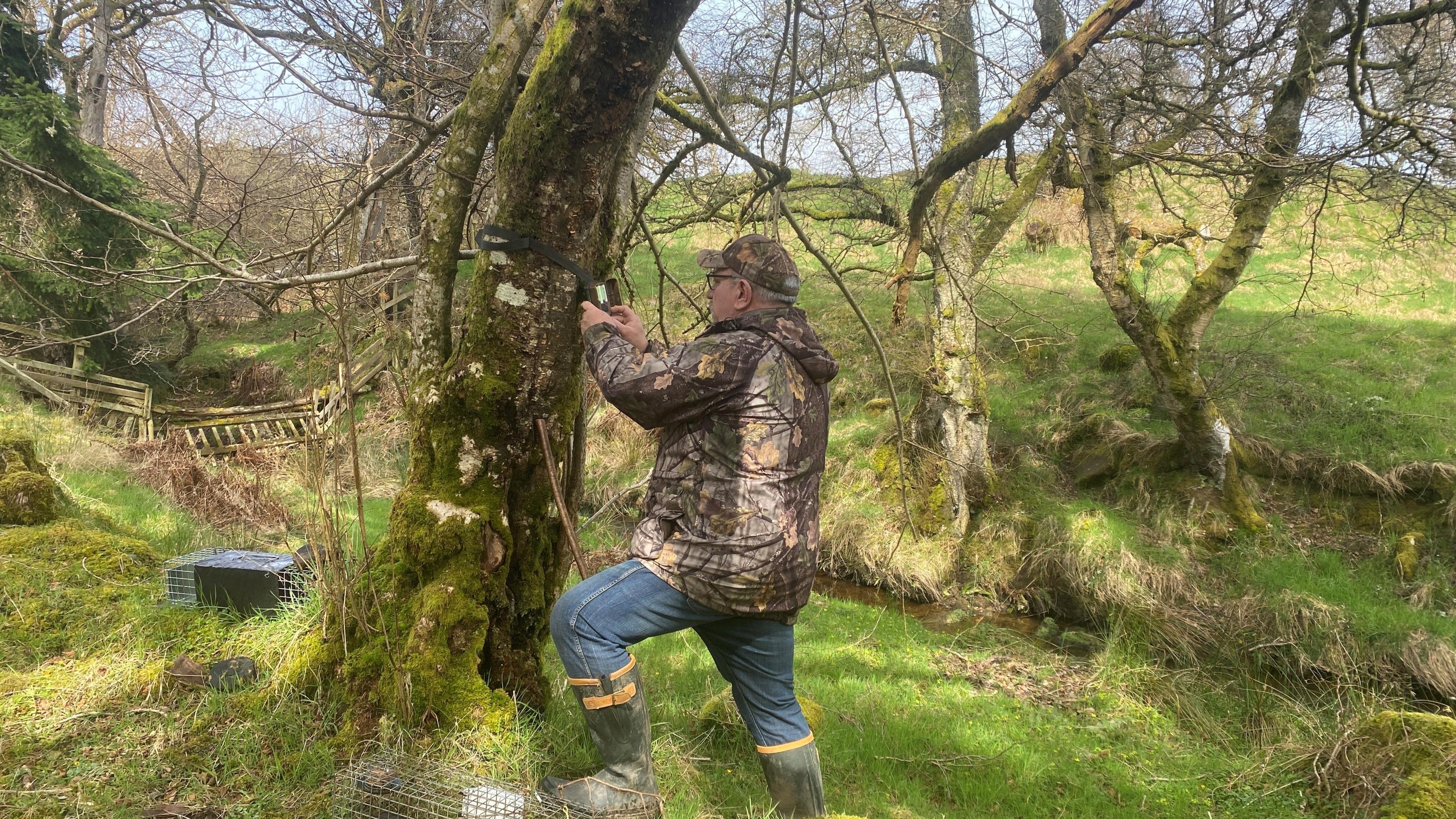
Ian Glendinning, who leads Northern Red Squirrels, says an outbreak of squirrel pox could wipe out whole pockets of red squirrels in some areas
Ian Glendinning, chair of Northern Red Squirrels - which represents volunteer conservation groups - said: "These groups are doing fantastic work to protect small pockets of red squirrels."
"But they are isolated populations, and if the pox spreads it could be curtains for them - which would be absolutely devastating after the efforts volunteers have put in," he added.
In a statement, the Department for Environment, Food and Rural Affairs (Defra) said: "There is a confirmed case of squirrel pox in the Blyth area of Northumberland.
"We encourage members of the public to report any suspected incidents to the Animal and Plant Health Agency."
Follow BBC North East on X, external, Facebook, external, Nextdoor, external and Instagram, external. Send your story ideas to northeastandcumbria@bbc.co.uk.
Related topics
More stories from BBC North East and Cumbria
- Published25 October 2024
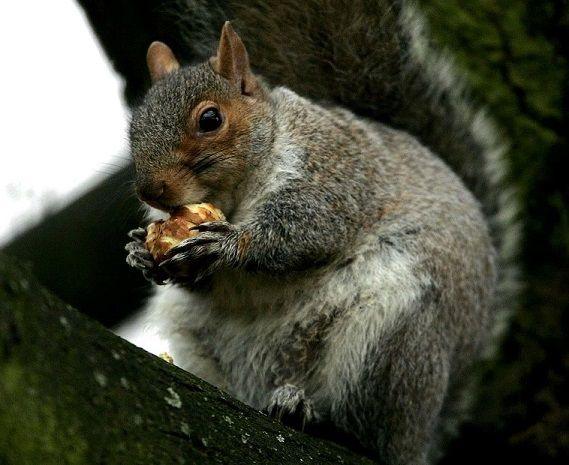
- Published3 December 2024

- Published25 April 2024
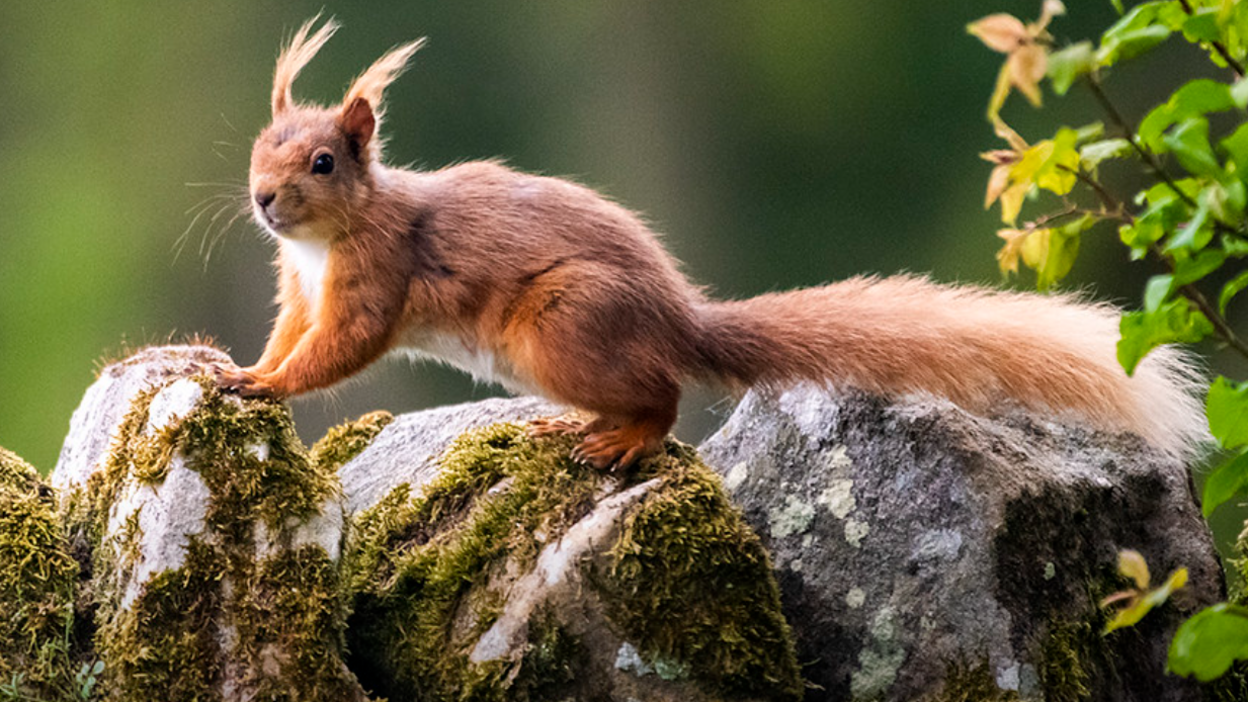
- Published11 July 2022
